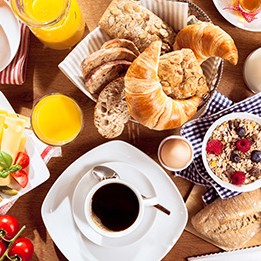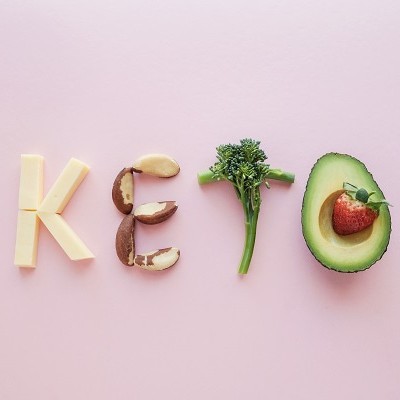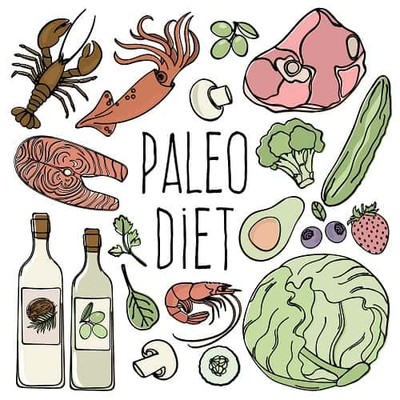Five Diet Tips for Easier Fat Loss

Strengthen your diet compliance with these easy tips
For anyone with a goal of fat loss, this blog is for you! Today we’re looking at five tried and tested tips to help you on your weight loss journey. These tips are all-around how you can foolproof your diet so you are less likely to stay away from your plan. Sound good? Let’s find out more…
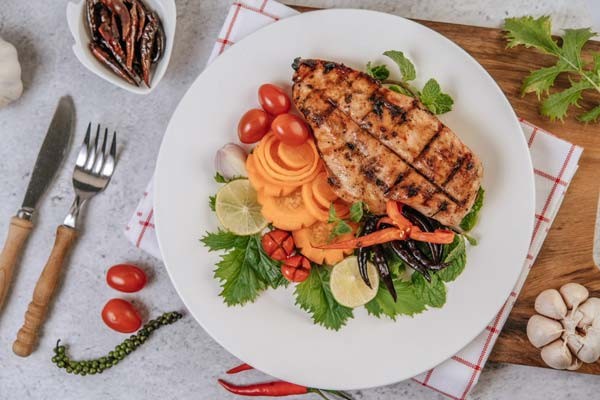
1. Choose solid protein sources over liquid sources
This cool little study compared appetite and hunger ratings after eating a chicken breast (solid protein meal) versus the same chicken breast blended with water (liquid protein meal). Scores for hunger and drive to eat were significantly lower after the solid meal versus the liquid one (despite exact same calorie and protein content).
So, solid protein meals look like they might be better for suppressing appetite compared to the same meal in shake/blended form….even with the extra volume of water!
If you have a ravenous appetite which is causing adherence issues with calorie targets, it’s probably better to stick to solid form protein feedings. Likewise, if you’re in the tail-end of a massing phase and consuming the required amount of food for weight gain has become taxing, then it could be a good idea to work in some shakes…or blend up some meals if you’re really hardcore.
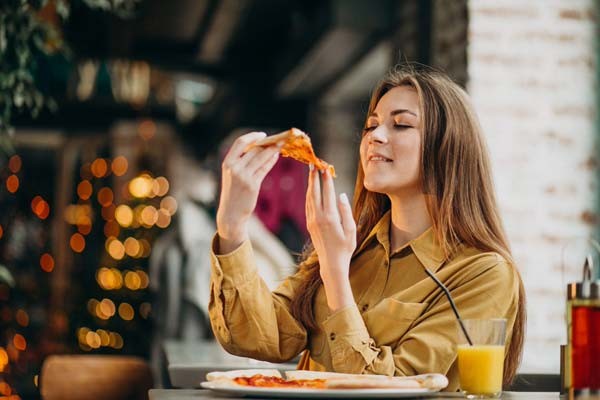
2. Limit consumption of commercially prepared foods or restaurant meals
In this second study, the researchers compared the stated caloric contents of ready-to-eat frozen meals (supermarket bought) and restaurant meals, with actual measured caloric content. The frozen meals had on average 8% more calories than stated on the label. Restaurant meals were even worse, with on average ~20% more calories than stated on the menu or online. Some restaurant items went as high as 200% more calories than stated!
I think the occasional dining out is fine, but if you’re in contest prep or the nutritional phase that demands a high degree of accuracy, you’re probably better off buying individual ingredients and getting your Jamie Oliver on. A few meals out per week in the range of +20% calories unaccounted for could really step down on the fat loss brakes.

3. Grandma always said to chew your food properly
Is there any truth to what grandma said or is she going senile? In this study, participants attended the lab for a lunch feeding session on 3 occasions. The lunch meal was always pesto pasta. On each occasion, the participants were allowed to eat as much as they wanted but either (1) chewing each mouthful 10 times before swallowing (2) 35 times before swallowing or (3) chewing as desired.
During the 35 chews per mouthful condition, participants ate significantly less than the two other conditions but felt just as satisfied once finished eating. So, if you’re trying to limit your calorie intake, listen to grandma and take more chews per mouthful to help you eat less.
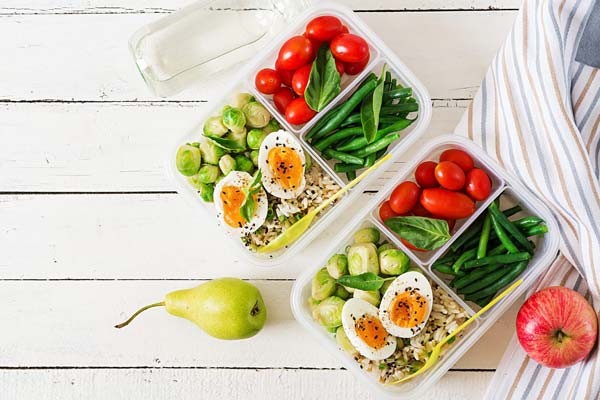
4. Less variation in your diet might just be a good thing for weight loss
A common topic of discussion among coaches and nutritionists is how much variation an athlete should apply within their diet. On one hand, eating a variety of foods may reduce the likelihood of nutritional deficiencies and improve gut bacterial diversity. On the other hand, having a more routine/less varied intake of foods can tend to make day-to-day weight movements more predictable, allowing for more accurate dietary adjustments when required.
In this study, the researchers examined the effects of habituation to a certain food (frequent exposure to the same meal). All participants attended the lab after a 3 hour fast and were allowed to eat as much macaroni and cheese during the session as desired. One group attended the “Mac N Cheese” session once per week for 5 weeks (weekly group) while the other group attended the session 5 times per week for 1 week (daily group).
In the daily group, participants ate the most during the first session and then intake progressively decreased each day after (ate less). In the weekly group, the amount they ate each session was mostly constant (there was actually even a slightly increasing trend over the 5 weeks). This means people eat less of a certain food when they eat it often. This also means it could be wise to reduce variation in your diet (or even adopt a meal plan) during contest prep or weight loss phase…as you will be less likely to overeat.
Obviously, there is a balancing point here, we don’t want the diet to be so monotonous and boring that you can’t adhere to it… and then end up falling off the wagon anyway.
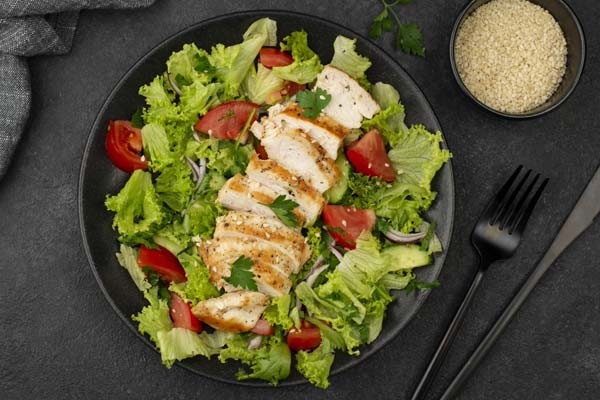
5. Limit high palatability foods, less satiety compared to bland foods when calories are matched!
In this study, participants were given their favourite food and told they could eat as much of it as they wanted in 5 minutes. Then, the researchers monitored changes in levels of appetite-regulating hormones for 2 hours after. In a second testing session, they fed the subjects the same number of macronutrients consumed during the “pleasurable” feeding session…but this time via a “non-pleasurable” mix of bread, milk and butter.
Even though the same number of calories were consumed in both feeding sessions, ghrelin (hunger hormone) was significantly higher and CKK (satiety hormone) was significantly lower during the “pleasurable” feeding session. So, hormones that impact our hunger change depending on how enjoyable or tasty a meal is (even when calories are matched), and highly palatable foods are less satisfying. It’s then pragmatic for those in a weight loss phase to reduce the palatability of the diet…according to this data, it’s less likely someone will binge and overeat on bland foods.
Simple tips that can help you succeed
When it comes to fat loss and staying true to your diet and your overarching goal, these simple tips can really help you!
Choosing whole foods over liquid or store-bought meals will help you stay fuller for longer so you’re less likely to reach for an extra snack. Be sure to eat your meals slowly, chewing each bite will also improve satiety so you are less likely to overeat.
Just a few small tweaks to your food choices can help you stick to your diet plan and achieve the results you desire. Good luck!

Jackson Peos has completed a PhD at the University of Western Australia, and has a straightforward approach to nutrition and supplements.
He's completed his BSc in Sports Science, and Exercise & Health, and his BSc (Hons) in Exercise Physiology.
More about Jackson PeosReferences:
- Epstein, L., Carr, K., Cavanaugh, M., Paluch, R. and Bouton, M., 2011. Long-term habituation to food in obese and nonobese women. The American Journal of Clinical Nutrition, 94(2), pp.371-376.
- Martens, M., Lemmens, S., Born, J. and Westerterp-Plantenga, M., 2011. A Solid High-Protein Meal Evokes Stronger Hunger Suppression Than a Liquefied High-Protein Meal. Obesity, 19(3), pp.522-527.
- Monteleone, P., Scognamiglio, P., Monteleone, A., Perillo, D., Canestrelli, B. and Maj, M., 2013. Gastroenteric hormone responses to hedonic eating in healthy humans. Psychoneuroendocrinology, 38(8), pp.1435-1441.
- Smit, H., Kemsley, E., Tapp, H. and Henry, C., 2011. Does prolonged chewing reduce food intake? Fletcherism revisited. Appetite, 57(1), pp.295-298.
- Urban, L., Dallal, G., Robinson, L., Ausman, L., Saltzman, E. and Roberts, S., 2010. The Accuracy of Stated Energy Contents of Reduced-Energy, Commercially Prepared Foods. Journal of the American Dietetic Association, 110(1), pp.116-123.
